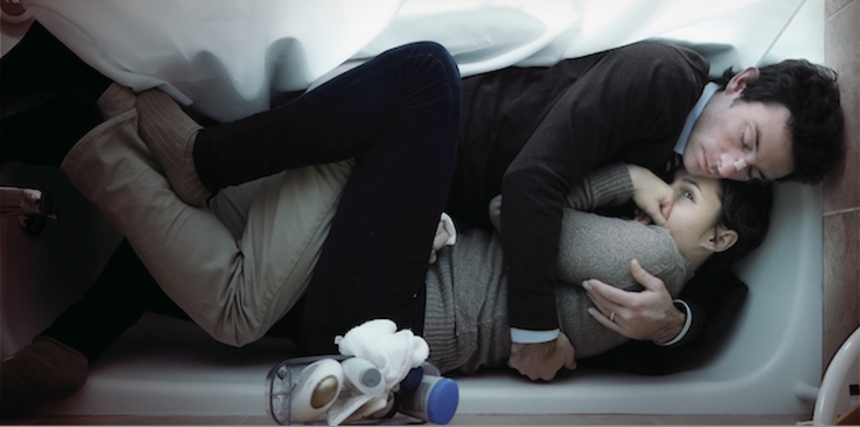Sundance 2013 Review: UPSTREAM COLOR May Be More Interesting to Discuss Than Watch

Ever since Primer won Sundance's grand jury prize in 2004, indie-watchers have been wondering what its writer-director, Shane Carruth, would do next. Primer was his first movie, you see, and he made it for $7,000. Who is this guy? Where did he come from? What other treasures are stored in his nerd brain?
Now, at last, we have answers. Sort of. Carruth's second film is Upstream Color. We know that much for sure. It's a ponderous, ethereal allegory about our interconnectedness with nature (maybe?), and it has as much in common with Primer as a shoe tree does with an apple tree. If Carruth didn't appear onscreen in both films, you'd never know they had any connection to each other.
I say that not as a criticism, just to indicate that it probably doesn't matter what you thought of Primer. Upstream Color is a different thing entirely.
Telling you what literally happens won't help, but here goes. A woman named Kris (Amy Seimetz) is dosed with a peculiar, mealworm-based drug, and subsequently swindled. A pig farmer (Andrew Sensenig), who is also a sound engineer and possibly a doctor, saves her. As she recovers from the ordeal, she meets and falls in love with a man (Carruth) who keeps remembering her life's memories as his own. Thoreau's "Walden" has an importance.
Carruth relates this strange tale with some linear jumps, dialogue-free sections, and a few other flourishes, but the story itself isn't complicated. (Weird, sure. Not complicated.) What it means is another matter. Since we're clearly not meant to take it literally (or at least not just literally), we look for clues to its interpretation. We have to: taken merely at face value, the story is cold, dispassionate, with characters we have no reason to care about. It's not particularly visually arresting or atmospheric. If that's all there is to it, then the film is turgid nonsense.
That's how it felt to me while I was watching it. No particular interpretation manifested itself, and since I couldn't find the thread that would tie it together, the film rolled over me like a swampy river of opaque randomness. Movies that need to be figured out, or that require multiple viewings to fully appreciate, aren't a problem; I just found this particular one unfulfilling.
But get this. In the first six hours after I saw the film with a couple hundred other Sundance-goers, and in the course of discussing it with people, I heard no fewer than four legitimate, plausible interpretations of its story. It's an allegory about love. It's an indictment of the way we over-medicate ourselves. It's about mankind's turning away from nature, God, or whatever force rules us. It's a rumination on free will. No doubt there are more ideas. Those are just the ones I encountered in conversation.
I don't have an opinion on what the "right" interpretation is. I'd need to watch it again to see how it resonates now that I've mulled it over and heard input from other viewers. What's noteworthy, I think, is that I do want to see it again. Discussing it with people who got different things out of it has made me eager to reexamine it, to see what might be there for me. So Upstream Color is interesting; it just doesn't get interesting till after it's over.







